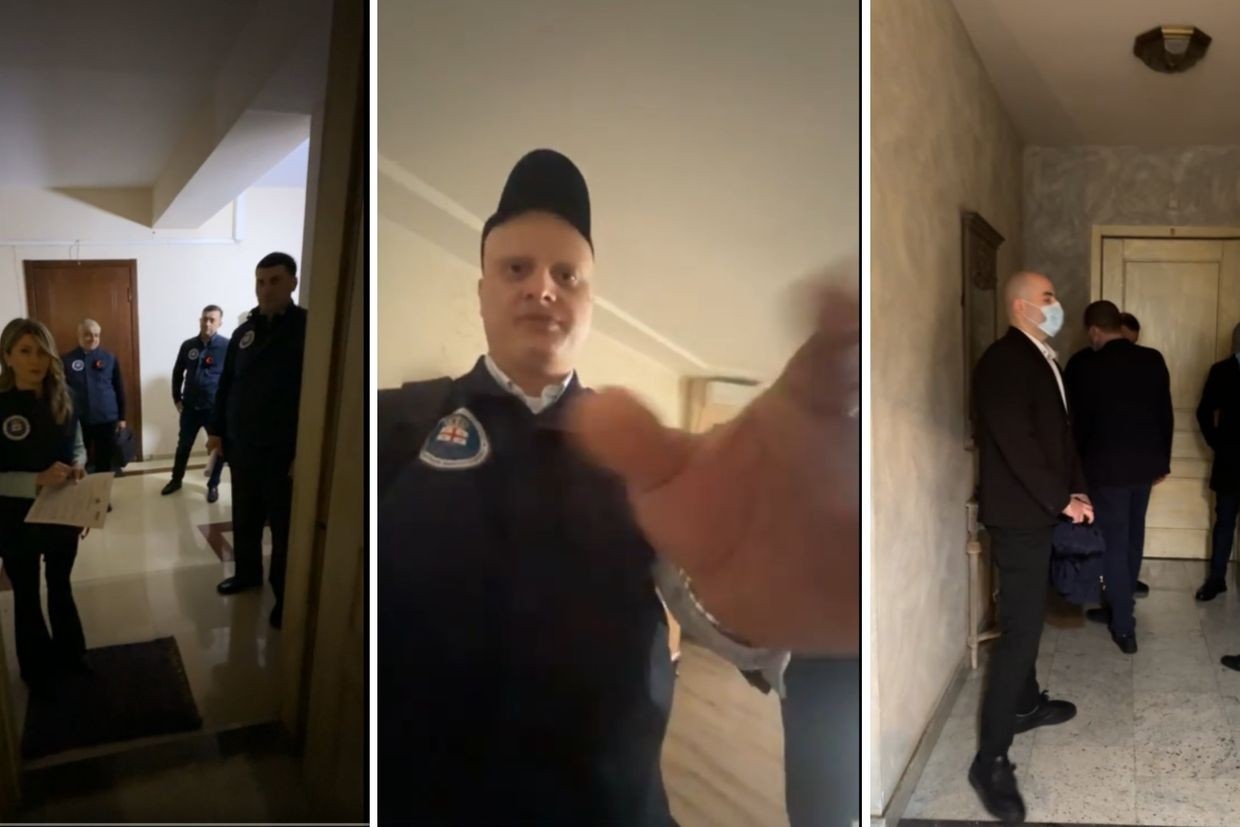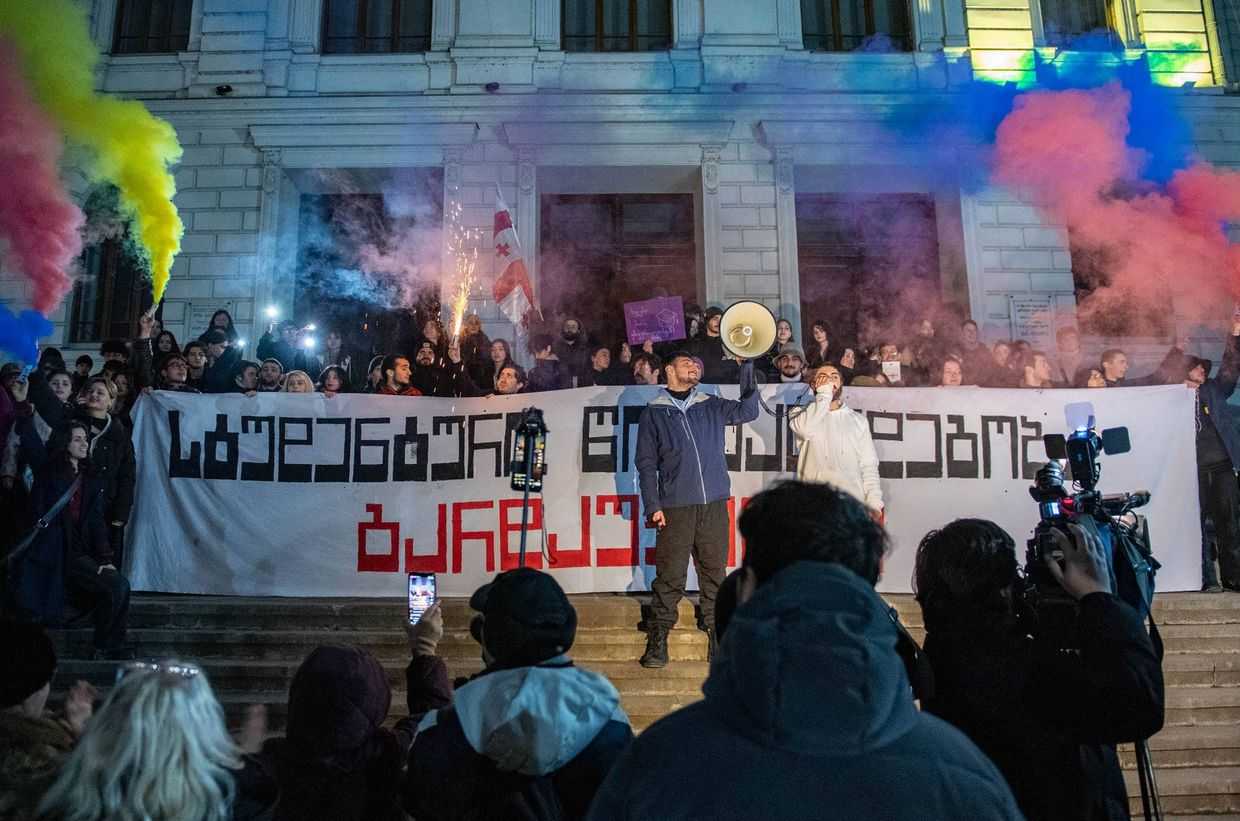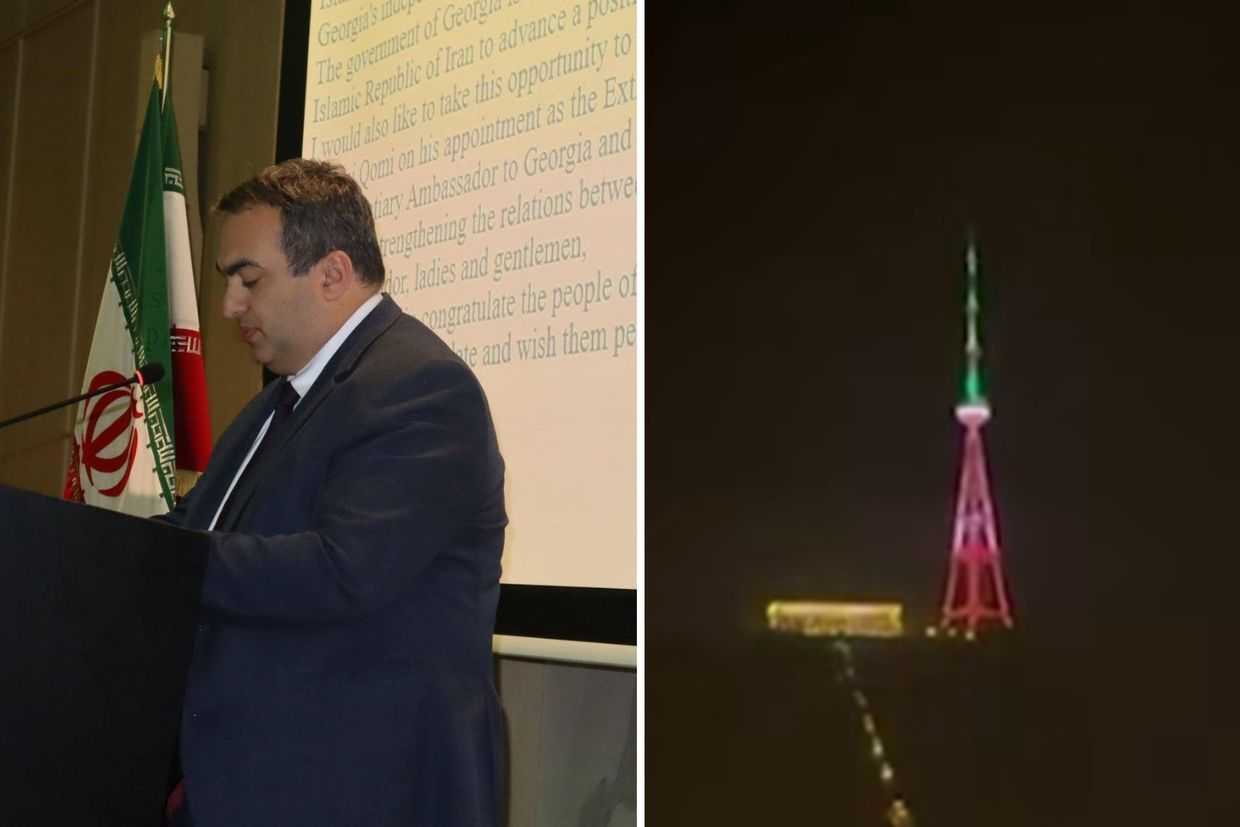Georgian officials raid homes of people linked to funding sources supporting pro-EU protesters

On Tuesday, Georgia’s Prosecutor General’s Office searched the homes of several individuals linked to funding sources that have helped people pay fines for anti-government, pro-EU protesters. The searches were carried out in Tbilisi as part of an investigation launched under the charge of ‘sabotage’, a case that was initiated in March following a request by a pro-government group.
The searches began in the morning. According to the Prosecutor General’s Office, court-issued personal search warrants were granted for five individuals, along with warrants to search both their registered and actual residences.
The list of the targeted organisations and individuals included Nanuka’s Foundation and its founder, journalist Nanuka Zhorzholiani; Prosperity Georgia and its representative Lasha Arveladze; Foundation For Each Other 24/7 and its founder Guga Khelaia; Shame Movement and its representative Mariam Bajelidze; and the Tbilisi Human Rights House and a member of its board Aleko Tskitishvili.
In mid-March, the Prosecutor General’s office froze the accounts of all these organisations.
Some of those targeted on Tuesday streamed the searches live on Facebook, but representatives of the Prosecutor General’s Office insisted they stop filming, claiming recording was prohibited and that phones had to be confiscated during the search.
At around 09:00, four representatives from the Prosecutor General’s Office arrived at Zhorzholiani’s home, whose Nanuka’s Fund had supported many protesters before the state froze its accounts.
Zhorzholiani let the officials in, but repeated that she didn’t trust them and refused to stop her Facebook livestream, which reached nearly a million views within hours.
‘I don’t know how you’ll use my personal photos [...] I don’t know what you might plant in my home’, Zhorzholiani told the officers.
‘We have the right to use proportional force’, one of them replied, insisting that even though the phone wasn’t explicitly mentioned in the warrant, it was still covered.
Soon after, the journalist’s lawyers arrived at her home. The officials again insisted that she stop the livestream after seizing her phone, when the journalist resumed streaming using her father’s device.
In her second livestream, five men in suits and medical masks appeared, who the journalist claimed were from the State Security Service. She repeatedly demanded they leave her home.
OC Media contacted the State Security Service's press office to confirm whether the agency was involved in the searches.
After the search, Zhorzholiani told media that, in addition to her phone, her son’s phone and laptop had also been taken. Speaking at her apartment, where journalists and Zhorzholiani’s friends had gathered, she did not rule out the possibility of being detained in the future.
‘The next step is that they will charge me, then wait for some time, and then they’ll detain us’, she added.
Earlier, while her home was still being searched, Zhorzholiani said that the Prosecutor General’s representatives also entered an apartment located across from her residence, which is registered under the name of her daughter, activist Mariam Geguchadze. She is a member of the founding assembly of the anti-government Shame Movement, though her name does not appear on the list released by the Prosecutor General’s Office on Tuesday.
Geguchadze complained that she was not allowed to be present during the search of her apartment, where her other family members live.
Earlier that morning, officials also entered the home of another Shame Movement member, Mariam Bajelidze, who is six months pregnant and was home with her seven-year-old child.
According to Bajelidze, she heard loud banging on the door, and one of the people outside introduced herself as her neighbour.
‘When I looked out, I realised she wasn’t a neighbour — I saw three more people [men] other than her and noticed body cameras. I asked what was going on, and they told me they were from the Prosecutor General’s Office, had a search warrant, and the right to enter by force if necessary — so it would be better if I opened the door’, she told journalists.
Bajelidze also began livestreaming the search on Facebook, but about 10 minutes in, one of the officials grabbed her phone. As she noted, the officials also seized her laptop.
‘They carried out the search very superficially [...] They knew the phone was the main thing they were after [...] They were making a clear effort to appear polite’, she added.
Bajelidze emphasised that the Shame Movement, including its financial operations, has been inactive since last November.
‘This is an attempt to intimidate us, and to convince [Georgian Dream] voters that there are groups in the country trying to sabotage it. I don’t believe today’s farce served any other purpose’, she said.
As part of the same operation, representatives of the Prosecutor General’s Office also searched for Aleko Tskitishvili, a board member of the Human Rights House Tbilisi (HRHT) and head of the Human Rights Center (HRC), which is part of the HRHT network.
Tskitishvili recounted that he was on his way to work when he was taken off a bus, searched on the street, and had his phone confiscated. Later, his home was searched as well, and his work laptop was seized.
‘We expect these repressive actions to continue. We’re continuing our work’, Tskitishvili told Netgazeti, adding: ‘No one is afraid of [Bidzina] Ivanishvili’s Russian regime or its hired enforcers’.
For Each Other 24/7 founder Guga Khelaia also reported that four officials conducted a personal and home search, during which his phone was sealed and taken.
‘After a full search of the apartment, which I was present for, they found nothing illegal and left’, he said.
The Prosecutor General’s Office targeted the organisations in the framework of the wider investigation which started in February — at the time, the Prosecutor General’s Office announced that an investigation had been launched on the basis of an appeal by United Neutral Georgia, a pro-government movement, on charges of sabotage, attempted sabotage, and aiding and abetting hostile activities.
Before the October parliamentary elections were held, the United Neutral Georgia movement advocated for opposition voters to be identified and prosecuted after elections.
The Prosecutor General’s Office claimed that since 28 November the protests and marches taking place in front of the Georgian Parliament and across the country have taken on a ‘violent character’, and charitable foundations are ‘encouraging’ people.
‘The investigation has established that in many cases, the collection and distribution of financial resources for the organisation of illegal and criminal activities is carried out through so-called “funds”’, the statement read.
The funds had repeatedly helped protest participants who were being issued massive fines by police, often on the grounds of road blockages. After the funds were frozen, many citizens began crowdfunding online to cover the penalties.
According to local media, hundreds of fines have been issued against demonstrators, and more than 50 criminal cases have been opened on various charges.
The local civil rights group Social Justice Centre (SJC) stated that the freezing of funds ‘appears politically motivated, unjustifiably halts the work of specific civil society organisations, and ultimately aims to reduce the current level of protest in the country and punish participants in the protests’.








![Baia Margishvili standing in central Tbilisi with a sign reading: ‘The Prosecutor’s Office [is] a punitive squad. How many more innocent people will you put in prison?’ Photo: Mariam Nikuradze/OC Media.](/_next/image/?url=https%3A%2F%2Fassets.bucket.fourthestate.app%2Foc-media-prod%2Fcontent%2Fimages%2F2026%2F02%2Fcalls-for-sanctions-and-raids-19-10-25-48.jpg&w=3840&q=50)


